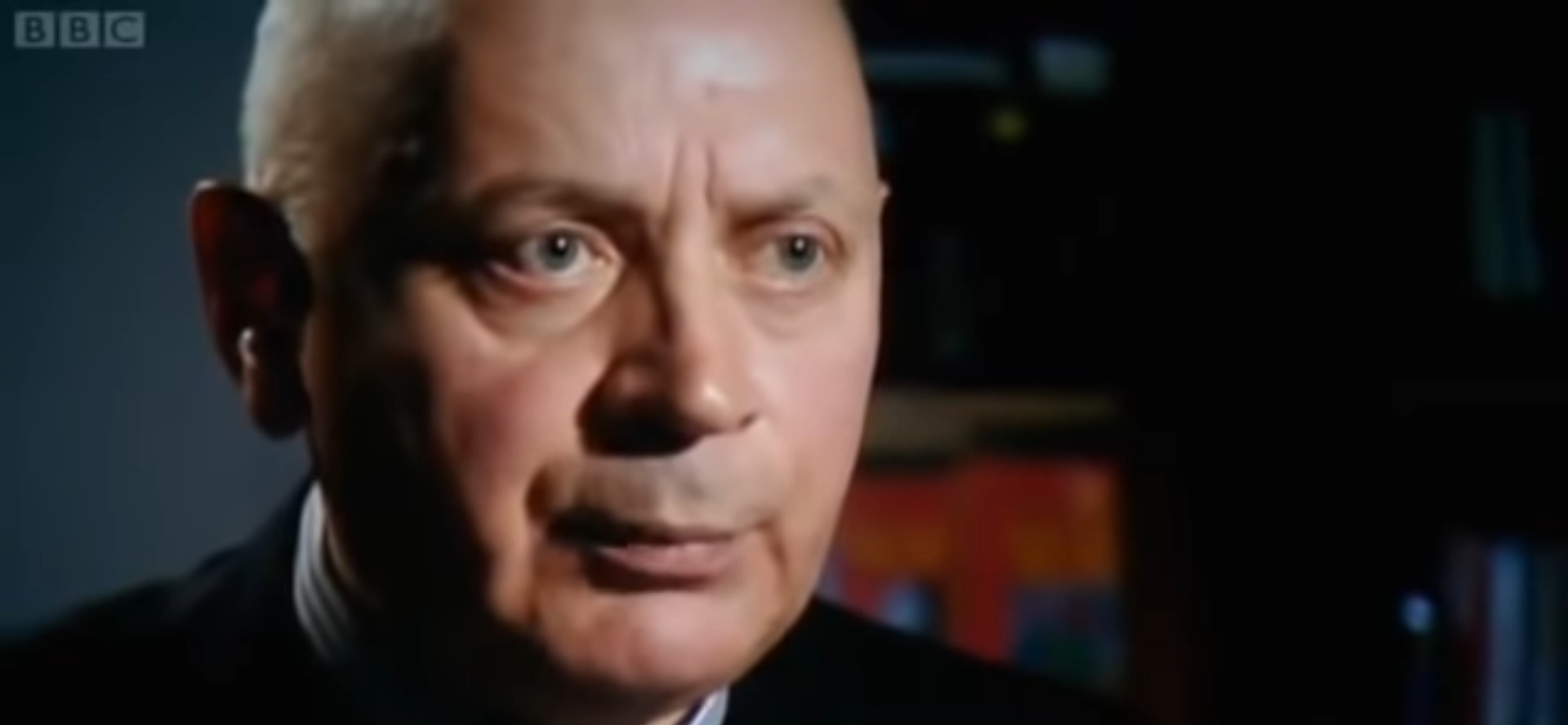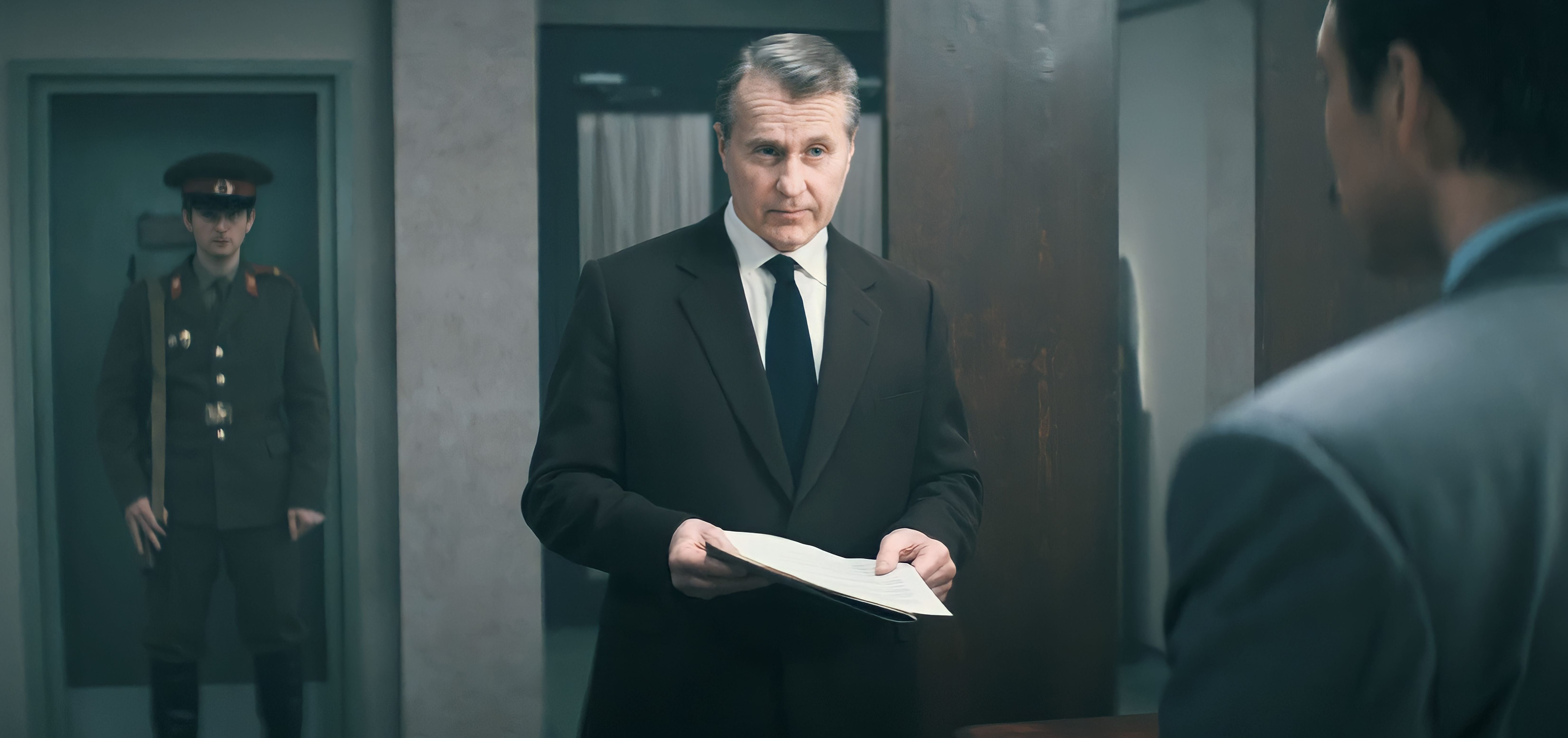Directed by Jon S. Baird, Apple TV+’s biographical film ‘Tetris’ follows the unbelievable efforts of Henk Rogers, who ends up in Soviet Russia to acquire the handheld rights to Tetris, a game created by Alexey Pajitnov. Henk comes to know that the game is owned by Elektronorgtechnica AKA ELORG, the organization that oversees the import and export of computer hardware and software in the Soviet Union, owned by the Ministry of Foreign Trade. In reality, Henk negotiated with ELORG head Nikolai Belikov to acquire the rights to the game for Nintendo to launch their famed product Game Boy with the same. Intrigued by the film, we set out to find out what really happened to ELORG and Belikov after Henk completed his mission. Here are our findings!
ELORG No Longer Exists
No, ELORG does not still exist. Alexey Pajitnov created Tetris in the mid-1980s while working at the state-owned Soviet Academy of Sciences. Since individual or private ownership didn’t exist in the Soviet Union at the time, the game’s rights were transferred from the creator to another state-owned establishment, Elektronorgtechnica AKA ELORG. In 1989, Henk Rogers and Nintendo acquired the home and handheld console rights to the game from ELORG. The company remained state-owned until 1991, the year in which the Soviet Union got dissolved.

After the collapse of the Communist state, Belikov turned the company into a private establishment known as ELORG LLC. and continued to run it. Meanwhile, Henk Rogers and Pajitnov formed The Tetris Company to license the game to third parties. Belikov’s company earned royalties from the sales of the game until 2005 upon joining hands with Henk and Pajitnov’s company. In 2005, Belikov sold ELORG LLC., including the rights to Tetris, to The Tetris Company for a sum of $15 million.
Nikolai Belikov Prefers to Lead a Private Life Today
According to Dan Ackerman’s ‘The Tetris Effect: The Game that Hypnotized the World,’ several influential Soviet officials weren’t pleased about Belikov’s decision to strike a deal with Henk and Nintendo. As per the book, Belikov was questioned by prosecutors, only for him to assume that he was under surveillance. After acquiring the console rights to Tetris, Nintendo started a legal battle against Atari Games for producing NES versions of the game. Nintendo brought Belikov to the United States to make it clear to the court that Robert Stein only had the home computer rights to the game.

Visiting the United States was a remarkable experience for Belikov. “He [Belikov] flew to California, where Nintendo kept him in the wings, ready to testify. […] Like every 1980s cliché about Russians encountering American excess, Lincoln [Nintendo’s lawyer Howard Lincoln] stood back and watched as Belikov marveled at the size and selection at QFC, a large grocery store on Mercer Island outside of Seattle. The Russian admitted he had never seen anything like it in his life,” Ackerman wrote in his book. The court then asked Atari to stop producing the company’s version of Tetris. Minoru Arakawa, the founder of Nintendo of America, reportedly celebrated the win with Belikov.
Belikov turned ELORG into a private establishment in 1991 and continued to earn royalties from the sales of the game until 2005, relinquishing his involvement in the game with the sale of his company to Henk and Pajitnov’s The Tetris Company. Belikov also founded R-Amtech International, Inc. in 1996. The company was founded to market and license Russian technologies in other countries, most prominently in the United States. In 2014, the businessman sued Maryann Huhs and Roy E. “Al” Huhs for fraud, breach of fiduciary duty, and conversion, accusing them of diverting R-Amtech’s technology rights and licensing revenues to the duo’s company. In August 2014, Belikov won the case. Since then, though, he has stayed away from the spotlight by choosing to keep his personal life private.
Read More: Is Tetris’ Sasha Based on a Real KGB Spy?


You must be logged in to post a comment.